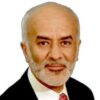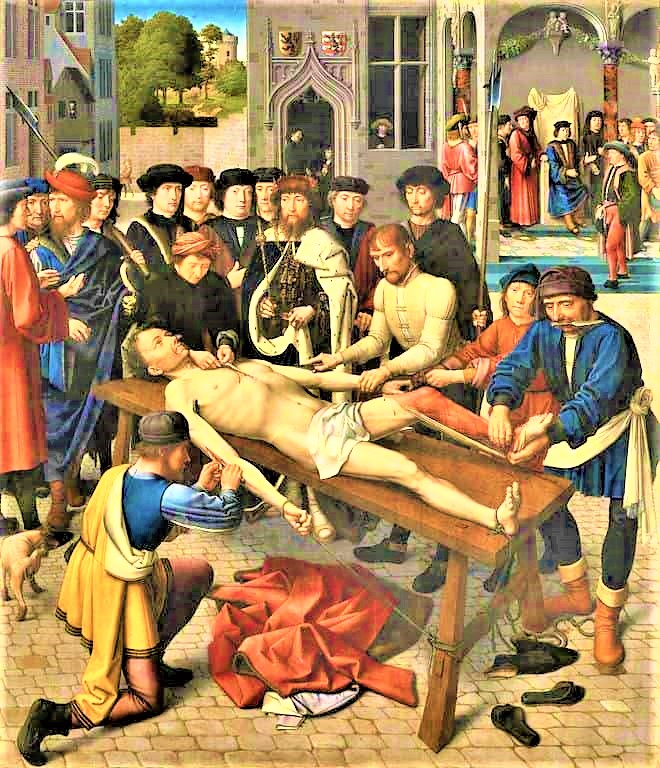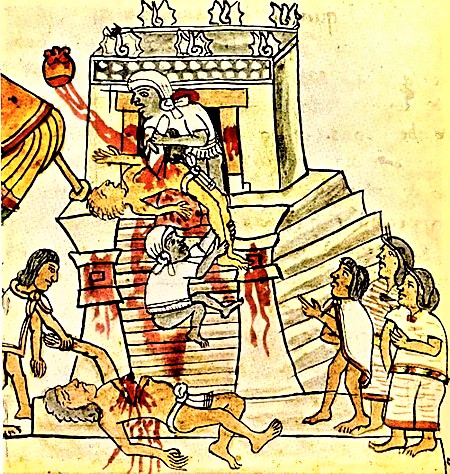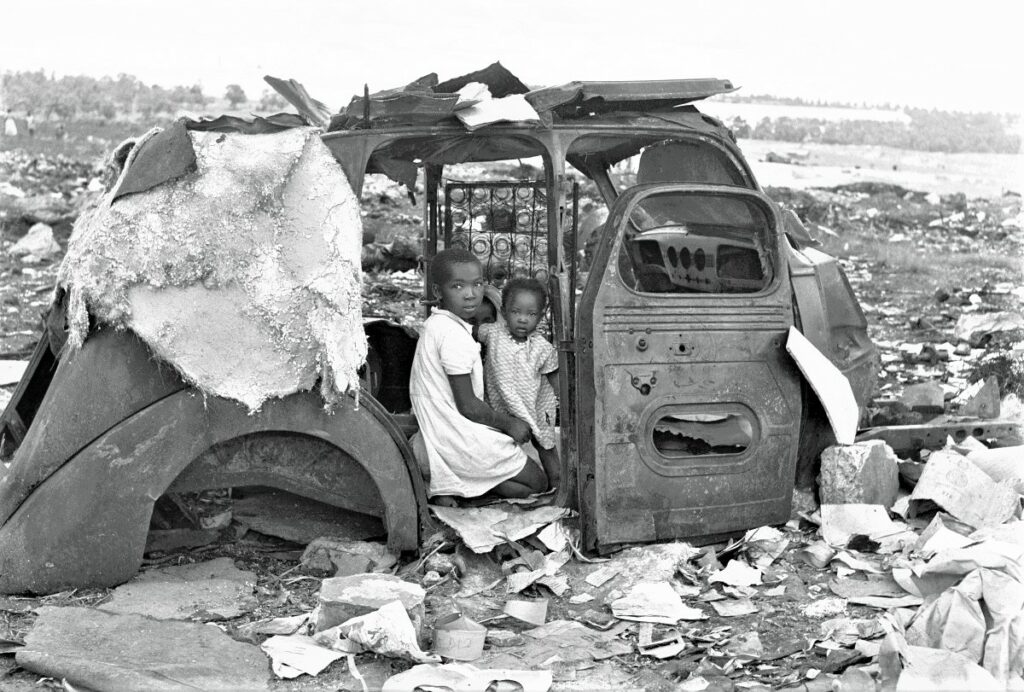The Ethics of Unethicality
TRANSCEND MEMBERS, 25 Oct 2021
Prof Hoosen Vawda – TRANSCEND Media Service
South Africa’s New Norm: The Acceptable Stealing of Public Funds and “Stepping Aside”
18 Oct 2021 – Post-1994, when liberation from the oppressive apartheid government of the White minority of Dutch origin who first colonised South Africa in 1652, by the arrival of Jan van Riebeeck[1] marked the beginning of a democratically elected government by a majority of the total population of 40.56 million in 1994[2] This was made up of 29, 464,000 South Africans of African origins[3]. The peaceful transformation to democracy, was greatly inspired by the first President of the Republic of South Africa, Nelson Rohlihla Mandela[4], the Icon of Black emancipation who spent over 27 year in incarceration most of it on the Robben Island, prison, for political dissidents and activists. In 2019, at the last census, the population of South Africa was 58,775,022[5].
This dismantling of apartheid, including petty apartheid as shown the graphics was an enormous beacon of hope for the masses of previously disenfranchised people of colour of South Africa who were ruled in a discriminative, oppression manner with Draconian laws subjugating them for nearly 350 years. It must be noted that it was the British Government who introduced racial discrimination in South Africa, as it did in the Far East, Indian sub-peninsula, and North America, while the Nationalist Afrikaner regime, who had allegiance with the Third Reich[6] in Germany, which actually subscribed who perfected it and officially incorporated it into the legislations of South Africa in 1948.
Initially, there was euphoria and optimism amongst the new Black, democratically elected government which took over in a bloodless transition in South Africa on 27th April 1994. However, over the years it became apparent that a new class of Black people emerged, who went into government, as the aging true Non-White, struggle stalwarts died off, passing on the mantle of responsibility of empowering their fellow-kind after achieving freedom through blood, exile and fierce persecution. The new elite class literally forgot about their mandate and extremely poor service delivering all over south Africa, except the Eastern Cape which was ruled by the multiracial Democratic Alliance as the official opposition in the National Assembly, while the rest of the country was governed by the African National Congress headed by President Mandela. Madiba, retired, a disillusioned man, noting that the people he fought for are still disempowered and the “Long Walk to Freedom has resulted in a Short Walk to Nowhere”[7] over a period of over 27 years sincere the fall of apartheid.
A universal code of ethics is applicable in every sphere of the civilised society from religion to commerce, but is particularly important and not negotiable when the ethical conduct is transgressed by a medical practitioner not only in the practice of medicine but in each and every sphere of the professional as well as the individuals’ personal lives. A student of medicine, which arguably is the most noble profession from ancient times, is not only categorised as a person of high moral conduct and ethical behavioral pattern, only after the individual qualifies, after long years of training and studies, the student is expected to subscribe to an ethical code of behavioural pattern from the day that student is enrolled in a medical school. Therefore, whatever the student does, thereafter, will impact on her or his fyuire reputation as a medical doctor. Even a non-medical doctor, a PhD, is expected to behave ethically, conducive to the highest qualification, the individual has been awarded.
Similarly, a medical doctor, post qualification, whether the individual is clinically orientated or has branched off into administration, the ethical foundation of the individuals’ professions unequivocally binds that individual to an ethical code of conduct at all times, in public or private, as well as this individual is expected to conduct her or his affairs according to the highest possible standards of practice of ethics, quite different from the non-medically qualified professional, in summary, the public comments are often made “ nobody expected a doctor to behave in this irresponsible manner”. A higher level of ethical behaviour is always anticipated from a medical doctor, by any society and in any era. Therefore, when a medical professional, be it a doctor a nurse or support and allied healthcare professional indulges in any nefarious behavior or commits a transgression, both the law as well as the society reacts in a harshest possible manner and with great abhorrence of the said conduct. This is a historical aspect of the life of a health care professional. In the ancient Persian Empire, the laws were so clear that when a medical doctor and remember, in those times, a doctor was a know all person, without the current compartmentalisation of a specialist and super-specialisation, such as a cardiac electrophysiologist, that when any minor crime was commoiied by a medical profession, their noses were cut off to signify their transgression. In some cases, there was amputation of limbs or the tongue for speaking lies.
Admittedly these sentences would be considered barbaric by the 21st century norms, but they acted as strong deterrent measures. If this was practiced today, then many doctors would be missing their dominant hands for the innumerable medical insurance frauds committed by medical colleagues. Furthermore, the sexual abuse by the US Olympic Gymnast Team doctor of young girls[8] has resulted in the attorney suing USA Gymnastics for failing to protect female athletes believes every Olympic team since 1996 has had members abused and sexually assaulted by Dr. Lawrence Nassar, who was entrusted with the enormous responsibility for their medical wellbeing. Dr Nassar, betrayed the trust of the young gymnasts, which he violated.
In ancient Persia, Dr Nassar would have been castrated, as well as probably undergone a penectomy before being flayed, piece by piece and subjected to a prolonged suffering and agonising death. According to a 5th century observation by Herodotus[9], the Persians (present day Iran) taught their young to follow strict honesty in their dealings with others. Herodotus wrote that the most disgraceful act capable of being committed was to lie, and lying in the Persian realms was often a capital crime, punishable by death. Lying was just one of many capital crimes, and execution was performed in manners which included great suffering, preceding death, often for many days.
The question which is often raised is what is ethics? The words ethics is derived from the Greek word ethikos, which itself is derived from the Greek word ethos, meaning custom or character. In philosophy, ethical behavior is that which is “good, without doing harm” The general body of ethics or moral philosophy involves developing, defending, and recommending concepts of what is right and wrong behaviour. These concepts do not change as one’s desires and motivations change. They are not relative to the situation. They are immutable. In general, ethics is the philosophy of morality. It addresses fundamental questions such as; How should I live my life? That question leads to others such as: What sort of person should I strive to be? What values are important? What standards or principles should I live by? There are various ways to define “ethics.” In a simplistic manner, ethics deals with “right” and “wrong.” However, it is difficult to judge what may be right or wrong in a particular situation without some frame of reference. In the ancient Incas and Mayan culture, it was considered right, not necessarily ethical to perform multiple human sacrifices[10] to appease the “Sun God” or the God of War[11]. This was widely practiced in the South American temples of the gold rich, Aztec and other South American indigenous peoples.
The ethics therefore changes over a period of time depending on the applicable norms of the society in that era. As an example , it would have been totally unethical for a Victorian lady even of ill repute to be minimally attired in a bikini or Black Tape Project” attire and appear in public in the Hyde Park, but today this minimalistic attire, highlighting the “beauty of the Lord’s creation” is totally acceptable without raising an eyebrow. Even in Saudi Arabia the opening of the Bikini Beach[12] in very close proximity to the holiest sites of the Islamic religions has been allowed by the de facto ruler, H E. Mohammed bin Salman[13], where 20 years ago the individuals would have been beheaded with a swipe at their necks on a Friday after the main midday prayer. Hence ethics must be based on accepted and applicable standards of behavior.
Hence, in virtually all societies and cultures it is wrong to kill someone or steal property from someone else unless corruption prevails and extrajudicial killings are condoned, by the government of the day. These standards have developed over a period of time, involving societal, cultural and political evolution. The standards are therefore derived from a variety of sources including, the influence of religious writing and interpretations, the influence of philosophical thought based on the past and present societal norms, such as when Queen Nandi [14]died, King Shaka[15] , her son ordered the execution of all pregnant women and their husbands, as well as maidens to be interred alive to highlight his grief on the passing on of his mother.
This was unquestionably accepted as ethical and the order was meticulously executed, both literally and figuratively, by his impis. Another factor which influences the standard of behaviour is the influence of societal values, like abortion as a constitutional right of females, while religiously it is considered murder, and greatly abhorred, while accepted and demanded by the society, with massive protests in Texas, in the present culture of the “freedom of the womb”. In summary, the norms, values, and the applicable laws governs how ethical or unethical we are conducting our lives today. This is important determining factor in the prevalence and incidence of gouging public funds earmarked for the benefit of the disempowered population in third world countries like South Africa, and perhaps the rest of Africa with notable exceptions.
Ethics deals with well-based standards of how people ought, to act it does not describe the way people do act, it deals with the way people should act. Ethical people set the moral compass and always strive to make the right decision in all circumstances. They do not rationalise their actions based on their own perceived self-interests, as it is happening in South Africa where the Minister of Health[16] misappropriated public funds amounting to R150 million, to redeploy them for use by his daughter-in-law and son, as well as for his personal gain. Ethical decision-making entails following certain well-established norms of behavior, which in the case under scrutiny were totally disobeyed. The best way to understand ethics may be to differentiate it from other concepts. Values are basic and fundamental beliefs that guide or motivate attitudes or actions. Values are concerned with how a person will behave in certain situations whereas ethics is concerned with how a moral person should behave. A person who values prestige, power, and wealth is likely to act out of self-interest whereas a person who values honesty, integrity and trust will typically act in the best interests of others. This embodies the overarching philosophy of “Ubuntu” in South Africa, which the Minister of Health elected to completely overlook for his self-directed interests, noting that he is a qualified medical doctor, registered with the Health Professionals Council of South Africa[17]. It does not follow that acting in the best interests of others precludes acting in one’s own self-interest. Indeed, the Golden Rule prescribes that we should treat others the way we want to be treated.
It is also relevant to examine what some religions say about ethics, especially with respect to administrators in the public domain. The Hindu scripture, the Bhagavad-Gita[18] advocates a consciousness and a spirit-centered approach to the subject of ethics based on eternal values and moral principles that should govern the conduct of administrators. The teachings, Krishna outlined to Arjuna form a system of ethics that has withstood the test of time.[19] Most religious books conclude that ethical failure occurs because of lack of character, as it is occurring in South Africa.
The entire public scenario is motivated and driven by political forces as was evidenced by a heavy police contingent being deployed consisting of 12 Metro Police[20] vehicles and 22 personnel when the official opposition party, in the South Africa parliament, the Democratic Alliance, wanted to conduct a public, primary health clinic oversight visit, were blocked access to the clinic, for the benefit of the public, where because of misappropriation of funds, by the Health Minister, these public health facilities are ill equipped.[21] It is also interesting to note by comparison that when first degrees murders are committed involving geriatric citizens, there are no police vehicles available to be deployed to the crime scene and often the police are still investigating many years down the line.
Similarly, the Abrahamic religions[22] universally agree on the importance of administrators subscribing fully to a code of conduct which is ethical at all times. Islam[23] is a comprehensive way of life it treats and nourishes an administrator personality via trustworthiness, honesty, virtue, politeness, responsibility, and accountability and it also discusses the intrinsic characteristics of humanoids to represent an elaborated debate in the form of moral values of individuals, particularly concerning the public administrators. By nature, Islam is the faith of an administrative oriented and it incorporate the professional code of morality in civil services which constitute the moral fiber of civil servants.[24] The present conduct of administrators in every field in South Africa leaves a great deal to be desired, especially in the health sector, where bribery and corruption is the order of the day in South Africa.
Noting this sad state of affairs involving corruption in South Africa, in the public sector in South Africa, the of University of the Free State Chancellor and President of Business Unity South Africa, Professor Bonang Mohale who on recently moderated a high-level dialogue on the establishment of a National Anti-Corruption Agency for South Africa. This meeting was hosted by the Inclusive Society Institute, and the dialogue which included civil society, activists and policy groups, was based on President Cyril Ramaphosa’s proposed establishment of a National Anti-Corruption Council (NACC) for the country. The ISI and the Anti-Corruption Centre for Education and Research (Accerus) of Stellenbosch, through its School of Public Leadership, partnered to research the realities of international and African Advisory Councils against corruption and to produce a report which will be handed to the public policymakers as a contribution to policy development.
The report seeks to make recommendations on the desirability of the NACC. Professor Mohale maintained that “South Africa is not a poor country, but rather poorly managed. He further added that “Twenty-seven years into democracy and even three-and-a-half years into the sixth administration, it is clear that state capture is still continuing despite the gigantic efforts of the President. “The thieves that we found as part of the cabinet are still there and have not been dealt with,” Mohale said. In a country with 60.1 million South Africans, on average collecting R1.4 trillion through the SA Revenue Services, Mohale said there is “absolutely no reason” why people should go to bed hungry because there is more than enough money to go around. He described the country as a middle-income country, not a poor country. “When we see the people who call themselves our leaders stealing the R500m socio-economic stimulus as a response to the pandemic, we know that we still have a long way to go, hence the need for this National Anti-Corruption Council,” Mohale said. “State capture is worse than corruption.
It is far worse than bribery, stealing and cheating.” The lead researcher of the Inclusive Society Institute, Professor Evangelis Mantzaris, who is also involved in compiling the report, said no single body can defeat corruption. “Political will and the right personnel will allow us to move forward. The most fundamental attitude is to actually upgrade what exists in the anti-corruption agencies,” he said. Mantzaris said no one could fight against corruption without the strong support of society, communities and the government and all its institutions. Mantzaris added that the report will be “very comprehensive” and provide 10 recommendations.
Drago Kos, who currently chairs the OECD working group on bribery in international business transactions, is a co-chair of Mena – OECD Business Integrity Network, and a member of International Anti-Corruption Advisory Board (IACAB), among others, questioned whether South Africa has anti-corruption fatigue as the country has 14 anti-corruption agencies. Kos said political will and the right personnel are necessary, but also clearly defined powers and resources. “We don’t need agency number 15.” Dr Abiola Makinwa. a senior lecturer in Commercial Law with a special focus on Anti-Corruption Law and Policy at The Hague University of Applied Sciences in The Netherlands, said there is a need for a radical new approach. “What has worked? Take focus away from punishment to prevention. This is a growing trend. There is a need for proper diagnosis. New modus operandi.
What lessons can be gleaned from best practices across the world?” Professor Pregala Solosh Pillay, who is the Vice-Dean at the School of Public Leadership at Stellenbosch University and Director of the Anti-Corruption Centre for Education and Research of Stellenbosch University (Accerus) said corruption robs the poor. Pillay added that 25% of African states’ GDP is lost to corruption. The former head of the Asset Forfeiture Unit of the National Prosecuting Authority, Willie Hofmeyr, highlighted that the country needed to know that law enforcement’s hands were clean. “Law enforcement has been contaminated. Every commissioner of police (in South Africa) since 2000[25] has been removed for criminal charges. We are not giving enough attention to prevention.”[26]
He should have added that the law cannot reach some of them, for example, the Registrar of the Health Professionals Council of South Africa[27] resigned from the Gauteng Health Department and in a short spate of few weeks was easily appointed as the Registrar and CEO of the HPCSA, without any security or other checks. He is suspended but not vilified as a medical doctor in South Africa, neither is the former Minister of Health[28]. The operative phrase is ‘stepping aside” and escape the law in most cases. This is a recurring phenomenon, even in municipalities and repurposing oneself down the line, in a new appointment based on equity and affirmative action as entrenched in the post freedom democratic legislature in South Africa.
The Bottom Line is “to steal and step aside, or not to steal and not empower oneself”. This is the new question and a great dilemma, which is in the minds of most politicians, presently in the South African Government. The general ethos is “if he stole and is happy, why can’t I”?. The spirit of Ubuntu[29] as espoused by years of indigenous culture and traditions is no longer applicable, nor respected. With the local elections set for 01st November[30], yet again another public holiday being officially declared addition to the woes of an embattled economy, mass unemployment, rampant bribery, corruption and irregular, wasteful spending in higher echelons of both local and national government, violent farm murders, brutal kidnappings of children, murders by law enforcement officers.
Serial killers on the loose, appointments of senior managers with proven track records of nefarious engagements, ruthless shooting of whistleblowers, God save South Africa and its still suffering citizens of all races, because of few stealing public funds and leaving the national and local “pots totally empty” for the masses. South Africa is following the path of the rest of the African Countries, rapidly becoming a failed state. This week, even the disbanded Liberation Struggle War Veterans (LSWV)[31], including Umkhonto weSizwe Military Veterans Association (MKMVA), the military wing of the ANC, held hostage top government officials against their will at the St George Hotel in Pretoria last week,[32] to highlight the abyss of lawlessness which the country has spiraled into, in recent months, since the July 2021[33] national civil unrest, orchestrated by parties with inter-racial antagonism.
References:
[1] https://en.wikipedia.org/wiki/Jan_van_Riebeeck
[2] https://www.bing.com/search?q=what+is+the+population+of+south+africa+in+1994&qs=n&form=QBRE&msbsrank=0_0__0&sp=-1&pq=what+is+the+population+of+south+africa+in+1&sc=0-43&sk=&cvid=36923A0C1CA94753964AC4425952C8D8#:~:text=Africa%20-%201994.%20Population%3A%2040%2C564%2C061
[3] https://www.nda.agric.za/docs/abstract04/Population.pdf
[4] https://es.scribd.com/document/198706182/Nelson-Rohlihla-Mandela
[5] https://www.bing.com/search?q=what+is+the+population+of+south+africa+today&cvid=f0c20dec8c0944e8b46aa8f94144cc70&aqs=edge.0.0.18712j0j1&pglt=43&FORM=ANSPA1&PC=U531#:~:text=The%20population%20of%20South%20Africa%20is%20about%2058.8%20million%20people%20of%20diverse%20origins%2C%20cultures%2C%20languages%2C%20and%20religions.%20The%202011%20South%20African%20census%20was%20the%20most%20recent%20held%20and%20the%20next%20will%20be%20in%202021
[6] https://www.bing.com/search?q=third+reich+definition&qs=CT&pq=third+reich&sk=CT1&sc=6-11&cvid=92C1BA6DF602461BB77287794148824D&FORM=QBRE&sp=2#:~:text=Culture-,Nazi%20Germany%2C%20officially%20known%20as%20the%20German%20Reich%20from%201933%20until%201943%2C%20and%20the%20Greater%20German%20Reich%20from%201943%20to%201945%2C%20was%20the%20German%20state%20between%201933%20and%201945%2C%20when%20Adolf%20Hitler%20and%20the%20Nazi%20Party%20controlled%20the%20country%2C%20transforming%20it%20into%20a%20dictatorship.%20Under%20Hitler%27s%20rule%2C,-Germany%20quickly%20became
[7] https://www.transcend.org/tms/2021/07/south-africa-the-long-walk-to-freedom-and-a-short-walk-to-nowhere/
[8] https://www.cbsnews.com/news/former-team-usa-gymnasts-describe-doctors-alleged-sexual-abuse-60-minutes-2019-08-09/
[9] https://historycollection.com/18-examples-of-crime-and-punishment-in-the-ancient-persian-empire/#:~:text=according%20to%20a,for%20many%20days.
[10] http://incamayanaztec.com/inca-human-sacrifice.html
[11] https://symbolsage.com/aztec-human-sacrifice/
[12] https://goltune.com/women-can-wear-bikini-in-saudi-arabias-special-beach/
[13] https://en.wikipedia.org/wiki/Mohammed_bin_Salman
[14] https://www.encyclopedia.com/women/encyclopedias-almanacs-transcripts-and-maps/nandi-c-1760s-1827
[15] http://en.wikipedia.org/wiki/Shaka
[16] https://www.dailymaverick.co.za/article/2021-05-23-exposed-dohs-r150m-digital-vibes-scandal-zweli-mkhize-associates-charged-millions-for-covid-19-media-briefings/
[17] https://www.bing.com/search?q=corruption+at+HPCSA&cvid=635c9bf0d17f476caa459a39cefd92b2&aqs=edge..69i57.14352j0j1&pglt=43&FORM=ANNTA1&PC=U531#:~:text=Date-,Corruption%20at%20HPCSA%20a%20symptom%20of%20government%E2%80%99s%20incompetence%20Thursday%20%7C%2011%20April%20%7C%202019%20The%20Solidarity%20Occupational%20Guild%20for%20Health%20Practitioners%20today%20strongly%20condemned%20the%20alleged%20corruption%20in%20the%20Health%20Professions%20Council%20of%20South%20Africa%20(HPSCA)%2C,-which%20could%20lead
[18] http://en.wikipedia.org/wiki/Bhagavad_Gita
[19] https://www.bing.com/search?q=bhagvagita+and+ethics&cvid=dd5b1f0d9ec14c10bb6a28b8b900286e&aqs=edge..69i57.7902j0j1&pglt=43&FORM=ANNTA1&PC=U531#:~:text=Date-,The%20Bhagavad-Gita%20advocates%20a%20consciousness%20and%20a%20spirit-centered%20approach%20to%20the%20subject%20of%20ethics%20based%20on%20eternal%20values%20and%20moral%20principles%20that%20should%20govern%20the%20conduct%20of%20administrators.%20The%20teachings%2C%20Krishna%20outlined%20to%20Arjuna%20form%20a%20system%20of%20ethics%20that%20has%20withstood%20the%20test%20of%20time,-.
[20] http://www.durban.gov.za/city_services/police/pages/default.aspx
[21] Report in The Springfield Weekly Gazette 21st October 2021 page 19.
[22] https://en.wikipedia.org/wiki/Abrahamic_religions
[23] https://en.wikipedia.org/wiki/Islam
[24] https://www.researchgate.net/publication/334697157_ADMINISTRATIVE_ETHICS_WITH_SPECIAL_REFERENCE_TO_ISLAM#:~:text=Islam%20is%20a%20comprehensive%20way%20of%20life%20it%20treats%20and,civil%20services%20which%20constitute%20the%20moral%20fiber%20of%20civil%20servants.
[25] https://www.saferspaces.org.za/uploads/files/Corruption_in_the_South_African_Police_Service_-_Civilian_Perceptions_and_Experiences.pdf
[26] https://www.msn.com/en-za/news/other/anti-corruption-dialogue-sa-is-not-a-poor-country-%e2%80%93-its-poorly-managed-say-experts/ar-AAPJHFm?ocid=msedgntp#:~:text=These%20were%20the,Political%20Bureau
[27] https://www.thesouthafrican.com/news/breaking-hpcsa-ceo-placed-on-suspension-over-corruption-allegations/
[28] https://www.msn.com/en-za/news/other/digital-vibes-report-by-siu-calls-for-anban-pillay-s-prosecution/ar-AAOWFFZ
[29] https://www.bing.com/search?q=ubuntu+definition&cvid=43186cbc8d8d45cabb97ac4e62b440c3&aqs=edge.3.0l6j69i60.8221j0j1&pglt=43&FORM=ANNTA1&PC=U531#:~:text=Ubuntu%20(%5B%C3%B9%C9%93%C3%BAnt%CA%BC%C3%B9%5D)%20is%20a%20Nguni%20Bantu%20term%20meaning%20%22humanity%22.%20It%20is%20sometimes%20translated%20as%20%22I%20am%20because%20we%20are%22%20(also%20%22I%20am%20because%20you%20are%22)%2C%20or%20%22humanity%20towards%20others
[30] https://www.cogta.gov.za/index.php/2021/09/09/south-africas-local-government-elections-to-take-place-on-1-november-2021/
[31] https://www.bing.com/search?q=Kidnaping+of+minister+by+Umkhonto-weSizwe-Military-Veterans-Association&cvid=aa1bff29262d40979c260262173373ec&aqs=edge..69i57.20928j0j4&FORM=ANAB01&PC=U531#:~:text=meeting%20with%20the-,Liberation%20Struggle%20War%20Veterans%20(LSWV)%2C,-comprised%20of%20members
[32] https://www.dailymaverick.co.za/article/2021-10-20-military-veterans-accused-of-kidnapping-government-officials-out-on-bail/#:~:text=disbanded%20Umkhonto%20weSizwe%20Military%20Veterans%20Association%20(MKMVA)%20accused%20of%20holding%20top%20government%20officials%20against%20their%20will%20at%20the%20St%20George%20Hotel%20in%20Pretoria%20last%20week.
[33] https://www.transcend.org/tms/2021/08/south-africa-durban-riots-1949-the-destruction-of-cato-manor-and-m murder-of-people-of-indian-origins/
______________________________________________
 Professor G. Hoosen M. Vawda (Bsc; MBChB; PhD.Wits) is a member of the TRANSCEND Network for Peace Development Environment.
Professor G. Hoosen M. Vawda (Bsc; MBChB; PhD.Wits) is a member of the TRANSCEND Network for Peace Development Environment.
Director: Glastonbury Medical Research Centre; Community Health and Indigent Programme Services; Body Donor Foundation SA.
Principal Investigator: Multinational Clinical Trials
Consultant: Medical and General Research Ethics; Internal Medicine and Clinical Psychiatry:UKZN, Nelson R. Mandela School of Medicine
Executive Member: Inter Religious Council KZN SA
Public Liaison: Medical Misadventures
Activism: Justice for All
Email: vawda@ukzn.ac.za
Tags: Africa, Corruption, Cultural violence, Culture of Violence, Elites, Ethics, Poverty, Torture
This article originally appeared on Transcend Media Service (TMS) on 25 Oct 2021.
Anticopyright: Editorials and articles originated on TMS may be freely reprinted, disseminated, translated and used as background material, provided an acknowledgement and link to the source, TMS: The Ethics of Unethicality, is included. Thank you.
If you enjoyed this article, please donate to TMS to join the growing list of TMS Supporters.

This work is licensed under a CC BY-NC 4.0 License.


